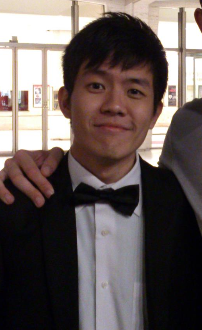Piano Concerto Festival: Beethoven, Mozart, Rachmaninoff
- albertlwj7
- Jul 13, 2014
- 3 min read
PIANO CONCERTO FESTIVAL (I)
M'ODE ORCHESTRA
SOTA CONCERT HALL
13 JULY 2014

In what was billed as the "first" piano concerto festival of its kind in South-East Asia, the M'Ode orchestra led by conductor Clarence Tan joined forces with students of pianist Tedd Joselson in a performance where sensible music-making was at a premium.
Programming three piano concerti in a single concert tests the limits of the audience's attention span and endurance, and it was just as well that this two and a half hour long concert included two intermissions. But the result was a rather unsatisfactory concert experience, as the enforced break after every work created a rather disjointed evening. Imagine a Formula One race with a half-time break.
The three soloists were seemingly inexperienced and raw, and it showed in performances that lacked conviction and teetered along.

Tommy Peh, currently a student at the Manhattan School of Music, lacked the personality and bravura to exert himself over the orchestra in Beethoven's Piano Concerto No. 5 in E-flat major.
While the technical aspects of the work were mostly secure enough, his penchant for compensating with the sustaining pedal could not mask the clumsiness of the exposed runs in unison. Often resorting to striking the keys in a bid to sound through the density of the orchestra's timbre, it made for painful listening as phrases were neither shaped with a clear intent nor purpose.
He wasn't helped by an orchestra that at times seemed at odds with each other over tempo, and it was down to conductor Tan's clear-headedness that the work did not fall apart.
To truly convince in Beethoven, one needs to thoroughly understand the harmonic direction and structure of the work. In this instance, Peh fell woefull short.

More successful in Mozart's Piano Concerto No. 23 in A major, K. 488, was Choon Hong Xiang, a graduate of the Nanyang Academy of Fine Arts diploma programme. His lightly detached articulation was always elegant, and phrasing considerate. However, the absence of any dynamic contrast made it a struggle for the audience to hear him at times. His tendency to shy away from the end of every phrase tore at the seams of the fluency between solo and tutti sections.
He should perhaps spare a thought for the poor woodwind section, especially the bassoons, with his choice of tempo in third movement. It is afterall marked allegro assai (which in the 18th century meant "fast enough") rather than allegro molto (meaning "very fast".)
Sri Lankan-born Louis Page was called in to replace a pianist who withdrew from the concert, which probably explains his rather ill-prepared performance of Rachmaninoff's Piano Concerto No. 2. While there were flashes of a rather imposing technique, passages were muddled over and moments that required technical showmanship were heavily trodden.
He often resorted to hiding behind the orchestra, which by now was fully warmed-up to the task and displayed some powerful and passionate playing.
There were moments of exquisite beauty, especially in the second movement as flautist Liu Yanjun, clarinettist Derek Han, and oboist Tess Moh took turns in a mesmerizing duet with the pianist.
While the soloists were generally a let-down, the M'Ode orchestra showed that it has quality players. The strings were capable of producing a lush tone, and the basses were rock solid throughout. Despite their tendencies to surge ahead, the woodwinds had their moments of awe, but the less said about the horn section the better. It is a pity that most of the members are non-professionals who are unable to devote more time to rehearsing or practising, and the monstrous repertoire probably stretched them beyond their limits. With proper refinement, they truly have the potential to be a formidable ensemble. You almost have to feel sorry for the pianists, being kicked not just into the deep end of the pool, but a pool filled with piranhas. One would have hoped that their teacher would have better prepared them for the occassion of performing with an orchestra, or perhaps chosen works more suited for them.
Comments